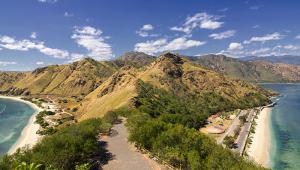The country has a sizable financial reserve to support economic development, thanks to natural resources, especially oil.
But the bank warned that the government faces risks and “difficult decisions” on how to spend the money to support sustainable development.
“With limited institutional capacity, there are risks that spending too much money too quickly will lead to wasteful spending which does not have the intended impact,” the World Bank said in a report published on 16 November.
It added the country could develop a sustainable economy by increasing investment in ‘human capital’, service delivery and “sustainably managing the environment and public finances”.
Timor-Leste is one of the most oil-dependent countries in the world. At its peak, oil made up over 90% of exports and 95% of the government’s revenues.
But the country’s natural resources are running out and the government should look at other ways to raise revenue, the bank said.
This echoes advice from the International Monetary Fund last year, which told Timor-Leste to make its public spending more efficient as its oil resources are expected to run out in a few years.
Against this backdrop, past governments have scaled up spending to accelerate development, which means there will be a revenue gap when oil runs out.
The World Bank said the country should “manage public finances carefully to avoid a damaging fiscal cliff”.
Most public services in the country have been financed by development funds from overseas donors and petroleum resources – both of which are in decline. Between 2002 and 2006 donor grants made up an average of 75% of government expenditure, but as the country has developed, it gets less overseas assistance.
“Even with very strong economic growth, Timor-Leste must start to develop revenue mobilisation systems now to avoid a hard landing, while leveraging private sector development financing may help to reduce fiscal pressure as well,” the World Bank said.
Annual average growth in Timor-Leste is between 5% and 6%, which the government should aim to maintain, the report said.
The Southeast Asian country has high levels of extreme poverty, hunger and child malnutrition as well as low levels of formal education.
The bank estimated that 40% of the population in Timor-Leste lack the minimum resources needed to satisfy basic needs and 30% still live below the $1.90 a day international poverty line.
But as a young country – Timor-Leste is the newest country in Asia – there are gaps in its policy and institutional frameworks. The World Bank said the country “faces a long task of building institutional capacity and policy frameworks”.
The report, Pathways for a New Economy and Sustainable Livelihoods, is an assessment of the development challenges facing the country.







